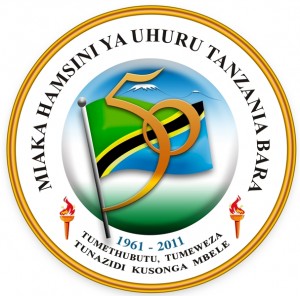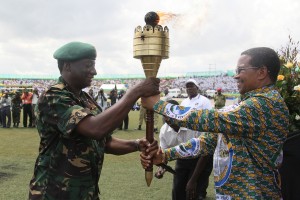It is human nature to forget the bad times and remember only the good times. One could argue that it is a type of emotional defense mechanism. When traumatic things happen in our lives, we try to forget them and choose to remember only the good moments and let the unsavory parts fade away. We can see this happen when celebrities or popular figures die. The obituaries tend to gloss over the less than sterling parts of their lives and celebrate the more triumphant moments. It is a rather interesting way of being nostalgic. Nostalgia is a “sentimental longing or wistful affection for the past, typically for a period or place with happy personal associations.” Feelings of nostalgia tend to flare especially when the status quo does not match our expectations.
Recently, these thoughts have come up quite often as I make my to and from work. Not to upset those who are stuck in traffic for hours in the morning but it takes me about 20 minutes to work, and over the past few mornings, those 20 minutes have been filled with advertisements and statements about how Tanzania is turning 50.
The other day, as I made my way home, I tuned in to an FM station hoping to hear some music. But instead of music, I heard another 60-second advertisement about how we are turning 50. Now, do not get me wrong, I am a proud Tanzanian and patriotic about our independence. Fifty years is an achievement and as Tanzanians we have to pay our due respect. It is also a very short time to accomplish anything transcendent. Europeans took over 200 years to get their democratic houses in order, women and African-Americans were not able to cast a single vote in the United States not too long ago. However, it just seems that this nostalgia about turning 50 is being shoved down our throats. It has a “oh by the way don’t forget about miaka hamsini” and “while you are at it, do you know we will be 50 in a couple of weeks?” Is this constant attempt at reminding us that we are turning 50 reflect a fear that we might forget? Is the fear that regular people aren’t quite demonstrating their excitement at Tanzania’s semi-centennial?
I think there is a challenge right now of galvanizing the people to reflect on the past fifty years. We do remember the good times but are constantly reminded about the bad. We have immense challenges and, as the saying goes, do Tanzanians feel they are better off today than they were ten years ago, let alone 50 years ago? The answer is probably no. I think instead of being nostalgic about the good old days we should really look inside ourselves, both the mwananchi and the leadership and interrogate how we can build a better tomorrow. This is because I think the majority of us are concerned about what the next 50 years will look like.
Challenges then are still present today

If we look at the major challenges that faced this country twenty years ago, we can probably point to corruption, energy deficits, and poverty and income inequality. The challenges today? Corruption, an energy crisis, poverty and income inequality, mix that in with a quality of education and perhaps a lack of sustainable leadership on all levels of society, you’d notice that we have a problem.
The power outages remind us every day of the issues we are still facing. It also reminds us of the inability to solve a problem that has been paramount in our country for years. I remember growing up, power cuts were part of life, 12 hours a day, and of course during the absolute heat of summer or during the month of Ramadhan. It was always expected: time to break fast, time for the power to go out.
You would have thought that in the early 1990s we would have come up with a plan to diversify our energy resources and establish an alternative energy source to complement hydropower. We have great relations with the Scandinavian countries. They are at the forefront of green and efficient energy, couldn’t we have had some sort of energy plan in conjunction with our friends in Europe? I guess that is neither here nor there, but there is immense difficulty in getting excited about our country turning 50 when you may not even be able to watch the celebrations on TV because the power may be out.
I saw a statistic that in 2006 there were 1,136 power outages in Tanzania, I wonder how many power cuts we had in 2011? I dread asking the TANESCO office for statistics like these, especially when their website claims “We light up your life.”
What about corruption? According to the 2010 East African Bribery Index (find the 2011 version here) the top five corrupt institutions in Tanzania were the Tanzanian Police, Judiciary, Tanzania Ports Authority, Registrar of Births and Deaths and Tanzania Revenue Authority. Some of these are not surprising, but two things stand out to me. First, these are services that are supposed to fight corruption, crime and monitor any misappropriations of funds. Second, the Registrar of Births and Deaths just seems out of place but if you were a conspiracy theorist you would probably go further and cross reference the numbers with the disparities of election votes.
The past few years have been quite damning for corruption in Tanzania with a series of scandals. Major ones that implicated the energy sector and the Bank of Tanzania come to mind. These included the construction of the Bank of Tanzania’s Twin Towers project, the misappropriation of over $133 million in the External Payment Arrears (EPA) account and the Richmond and Dowans cases. The compromise of various politicians also hurt the faith and legitimacy the people feel on the incumbent political party of CCM.
So it is rather hard to see or feel any sense of happiness or pride in the context of these challenges. But in reality any time there is bad news we can highlight the good, and it is what we do with the good elements of our country that can differentiate us from the past when we look forward to the next 50 years.
We didn’t get here without sustained progress
Tanzania is still one of the few countries with a politically stable environment. We still have a unified national identity to hold on to that was established during Nyerere’s time. We do not have a severe history of electoral violence and transitions between new governments have been smooth, albeit being within the same party. We still have Kiswahili that unites us. Tribalism and ethnicity are secondary to our national identity.
Perhaps some of the challenges we have had in the past have morphed themselves into something more exciting. The rise of a strong opposition is a welcomed good for our democratic process. CHADEMA’s ascension is something that is healthy for our country and necessary for inclusive dialogue. Now every political party has challenges and things you may not necessarily agree with. I for one believe that the best thing CHADEMA could do right now is provide the people with a 50 year plan of how they see Tanzania. We are turning 50 and we have a tendency to always look back and be stuck there. We need to move forward, accept history and keep the train moving. Giving people options to decide over what kind of path they want is essential to a democratic process.
All is not lost, we have accomplished a lot in the past 50 years. We have a free press that has the liberty to say anything it wants and we can actually say that there has never been a situation where the political opposition have been imprisoned because of their beliefs (Chadema may dispute this with the arrest of their people in Arusha).

Who will lead us to 100?
Leadership is crucial in solving the current challenges we face and piggy backing off our successes. In Tanzania it is needed from the top to the bottom. One thing I do miss and am nostalgic about from 50 years ago is our foreign policy. During Nyerere’s time we had a sense of assertiveness and clarity on foreign issues, which led to everyone look to us for direction on key issues shaping our continent. Now, we are the polar opposite where it seems like we wait to see the reactions of others and then follow suit. What is our foreign policy? What are our principles that drive these policies? There was a time we used to host liberation movements with open arms; do you think we would be able to host the African National Congress (ANC) today?
I can only hope that the next 50 years will be prosperous, that our economic growth will trickle down to those in need and that we will re-establish our position as one of the major anchors of the region.


Hili ni taifa la vijana na wanachofanya ni kujaribu kuwakumbusha vijana kuwa “Hali ilikuwa mbaya zaidi ya sasa” kwa sababu bila ya kufanya hivyo kijana yoyote aliyezaliwa kuanzia kwenye 1980s hawezi kulielewa hili taifa.
Vijana ndio wa kuendelea kubadilisha sura ya taifa hili kuwa zuri zaidi, tunawashukuru sana viongozi wetu waliotutoa mbali, mmojawapo ni mwl nyerere, big up sana vijana tukaze buti. kila la kheri